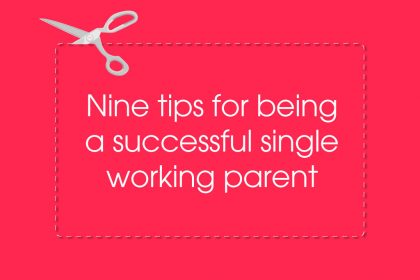The common pitfalls of working out your income needs during a divorce (and how to avoid them)
Are you planning to or in the processes of getting divorced? Find out how to work out your income needs – and avoid common pitfalls.
Working out your regular expenditure is an essential part of the divorce process. It is vitally important because it could lead to spousal maintenance, ie regular payments made to you by your former husband/partner.
When considering if you will need spousal maintenance, the family court will look at various issues. First, whether you can afford to pay your reasonable outgoings from your income and whether you are maximising your income from all possible sources.
If there is a deficit between your own income and outgoings, can the other spouse afford to pay you spousal maintenance? If they can, how much should be paid and for how long?
Start by considering your outgoings
The process begins by considering each person’s outgoings; you will be asked to complete an expenditure schedule. Getting the schedule of outgoings right and including everything relevant to your expenditure is very important. It is an essential part of the financial disclosure process but it is not as straightforward as you might think.
Many people find the schedule tricky to complete particularly when one spouse has had more involvement in the financial arrangements of the family leaving the other person ill equipped to understand the true extent of what their monthly spending could be once living separately.
There are helpful tips you can follow to get this right. Firstly, your solicitor will give you a template spreadsheet with headings for you to complete including a variety of different costs you may have. Make sure you use this document, it has been specifically designed for the purpose of capturing all of your outgoings.
Then review your own personal and joint bank statements. Ideally review the last 12 months to identify all direct debits and standing orders, regular payments you are making for yourself, relating to your home or children or other dependants you care for.
Don’t forget these often overlooked expenses
Spending that often get overlooked include streaming services like Netflix or Disney, and cloud storage as well as subscription Apps (stored on your tablet or smart phone) for example Calm or Duolingo. Also, medical prescriptions which might not be regular but necessary, and pet expenses including stabling costs for horses or vets bills or monthly pet plan fees which are often more than you expect when you add them together across the year.
We often see grocery spending being grossly underestimated especially where there are children in the household. It’s also worth bearing in mind that expenditure on children always increases as they get older. Their needs (and future needs) must be accounted for from breakfast clubs, holiday clubs, sporting or musical activities to tutoring and driving lessons.
Don’t exaggerate your spending
When working out your anticipated household expenditure, the schedule must accurately reflect your expected outgoings. The family court takes a dim view of those who exaggerate their spending or where spending grossly exceeds their income (their sole income or even combined). It is expected that the spending should reflect the standard of living enjoyed during the marriage.
Once you set out your outgoings it can be difficult to later revise that figure upwards without incurring criticism from the court or your opposing solicitor so it is very important that you ensure that the schedule is comprehensive. If you find this process overwhelming, you may wish to outsource it to a specialist independent company who can work out your expenditure in a bespoke way.
We can recommend such companies and it is worth bearing in mind that the fee paid will often be a lot less than it would cost to get your solicitor to do this for you.
Review your income levels
Once outgoings are established, it is necessary to review the income level you and your spouse have, or will have in the foreseeable future. Income includes employment salary, rental or investment income and passive income as a beneficiary from a trust.
If you are not working, you will be expected to return to work but the court will consider your ability to re-enter the workplace by looking at your skillset and what retraining you may need to return to your previous career or pursue a new career.
Be organised and take control of this and provide as much information to your solicitor as possible. Those who are proactive in planning their future, no matter your age, can move forward positively.
If you know what you would like to do, you can document the cost and scope for retraining and factor this into your outgoings. If you do not know what you would like to do, you could consult a careers advisor to provide insight into potential opportunities taking your circumstances and experience into account.
Your maintenance order will probably be for a fixed term
Your maintenance order is most likely to be fixed for a term (limited to just five years in Scotland) and provision may be made for the monthly maintenance figure to reduce over time as your career develops. In England and Wale maintenance can be awarded for life but only in exceptional circumstances and the court is moving quickly towards far shorter maintenance periods than before.
When children are young and you are the main carer you have a limited ability to work and maintenance payments will be higher. As they get older your time and ability to work more increases and maintenance payments will likely decrease in phased step downs. It isn’t guaranteed that spousal maintenance will be paid until the youngest child reaches 18 years old as once was the case.
The assessment of when maintenance should stop is now assessed far more vigorously and harshly than ever before. There is certainly a higher expectation of becoming financially independent before children reach 18 years which sometimes can be seriously detrimental to those women particularly who sacrificed a career during the marriage and cannot re-enter the workplace in the same place they left it, and certainly not in the place they would have been had they pursued their career without a break.
Factor in any capital sums you may receive
In addition to earning capacity, we also have to factor in whether you can expect to receive a capital sum (which is not designated for rehousing) and how much income you can expect to derive from it once it is invested. Finally, the ability of your spouse to pay the maintenance is a factor, which includes considering their age and health when determining how long it could be paid for.
Take the time to get your finances right
Many people do not put aside adequate time to address the task of completing their outgoings schedule. As we have seen, it is an essential part of the negotiation process for any person who will need spousal maintenance after divorce.
We highly recommend you take your time, are as accurate as possible and let your solicitor know if you wish to employ an expert to assist in its completion to ensure you prepare your case thoroughly from the start. This can be especially important if financial abuse is involved.
Read more divorce advice
You can read more advice on navigating separation and divorce in these articles:
- Six ways you can save money on legal fees when getting divorced
- Seven tips to help you have a ‘good’ divorce
- How to navigate Christmas when you are newly divorced or separated
- Taking your children on holiday abroad following separation and divorce
Vanessa Gardiner is a partner in the family law team at RWK Goodman.










